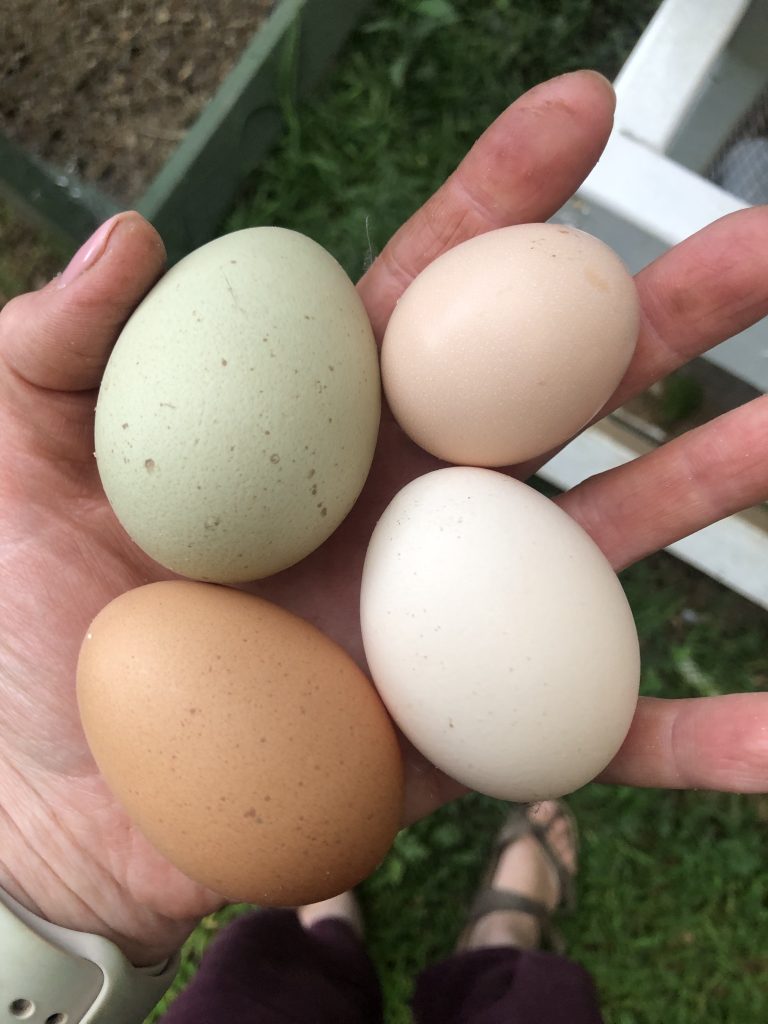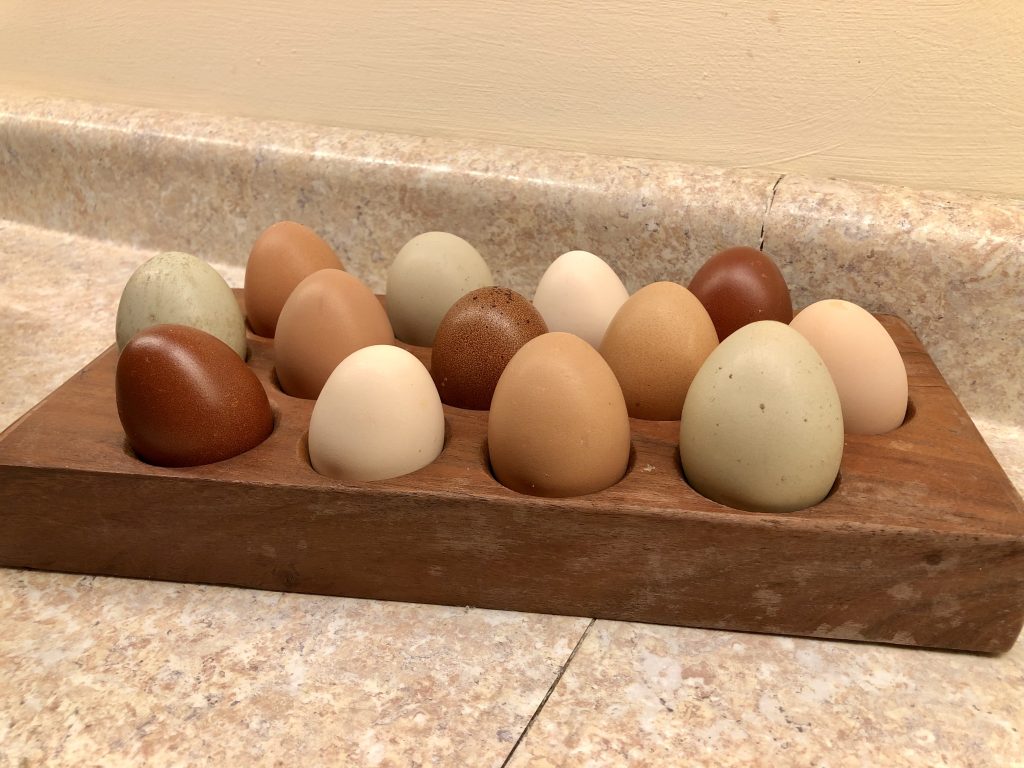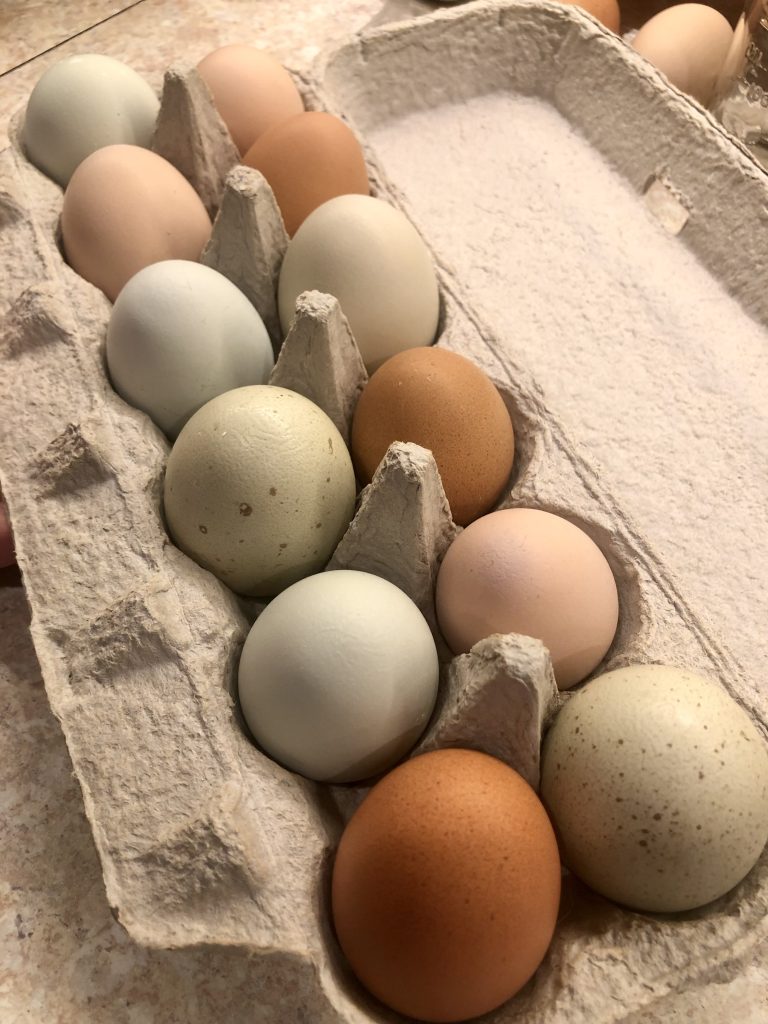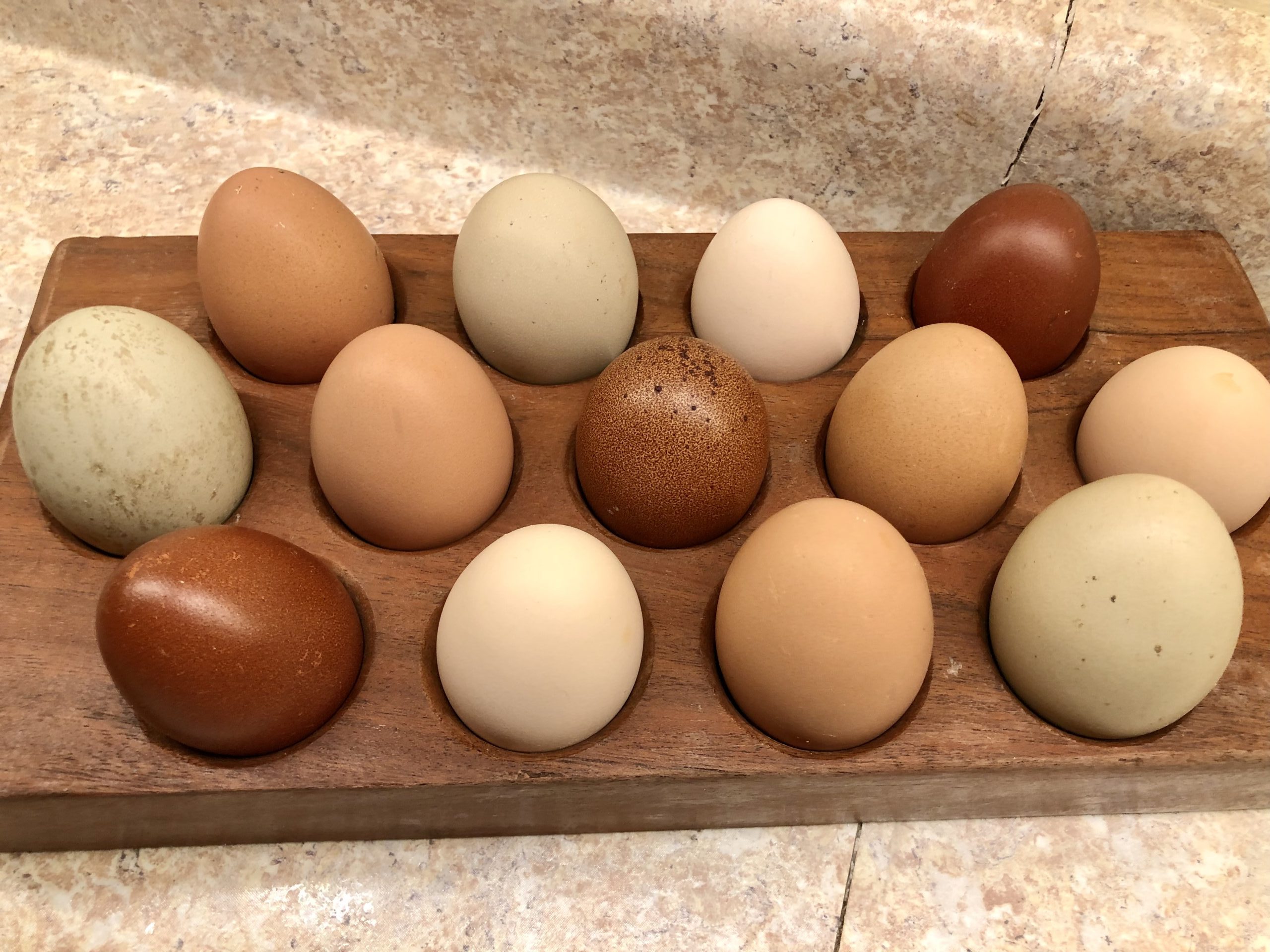When I studied abroad in Spain, I was surprised that rather than finding eggs in the refrigerated section of the grocery store, they were in a regular aisle – not refrigerated at all. I was further confused that they were also not refrigerated for home storage. The concept was totally foreign to me and I couldn’t understand how that could possibly be safe.

At the time, I’d never heard about a natural coating that eggs have from the hen that laid them. This coating is called ‘bloom’ and it acts as a final layer of protection to the egg (and in the case of a fertilized egg, protection to the developing chick). This bloom helps prevent bacteria from entering through the shell and contaminating the contents. In the U.S., all store bought eggs are required to be washed before being sold in stores. This process removes the bloom, so the eggs must then be refrigerated to maintain freshness and prevent spoilage.
As a chicken tender (see what I did there?), I put a lot of research into chicken care and egg handling. After learning about the bloom, I decided to give ‘counter eggs’ a try. I even got a cute carved wood egg holder for my countertop. I was delightfully surprised! I’ve never had any issues with spoilage, and I’ve definitely freed up space in my fridge.

Now, there are some important things to take into consideration. If an egg is dirty with poo, mud, or who knows what – and it cant be gently removed with a dry cloth, well – you should wash it and store in the fridge. If an egg has gotten wet from rain, snow, or condensation – you should assume the bloom is no longer in tact and it should be refrigerated. Condensation comes into play with winter eggs (if you are fortunate to have some hens laying in the winter!). If the eggs get cold from not being collected right away, then brought into a warm house, they will develop condensation on them as the warm up to room temperature – and this will compromise the bloom as well. Eggs should not be refrigerated then left out on the counter for the same reason – they’re likely to develop condensation and compromise the bloom.
It is important to maintain clean nesting boxes – not only for the health of the birds, but also to keep from getting dirty eggs. The nesting boxes should not be underneath where the chickens roost at night (unless they have a cover or an aptly named ‘poop board’ above them to contain the waste), because chickens poop… a whole lot, even while sleeping. Like they literally poop every 30 minutes or so, and that really adds up! Clean nesting boxes = significantly cleaner eggs, which allows you to store the eggs on the counter if you choose.
When I’m ready to use my counter eggs, I wash them off with warm water and dry on a clean towel. It’s important to NOT soak the eggs in the water, as this could cause the water to soak through the shell, potentially bringing bacteria with it.
I stash all my egg shells in the ‘chicken bucket’ that we keep near our sink for fruit & veggie scraps to feed as treats. The chickens go crazy for the shells as a way to help meet their calcium needs (though they are provided with oyster shell to fully meet their needs). Some people prefer to bake and crush the shells before feeding back to their chickens to help discourage the hens from getting into the habit of egg eating, but I’ve personally never had any issues with just feeding them back cracked in half.

Since I leave the bloom intact and my eggs are fresh, they remain safe on the counter for 2-4 weeks. If you store your eggs in the fridge, they are good for up to 3 months. Commercial eggs are typically already a month old by the time that you purchase them, and as they have been washed, have a shorter shelf life of about 1-2 weeks from purchase. This is also why store bought eggs peel easier when hard-boiled; some of the liquid has evaporated through the shell, allowing more room inside for the shell to separate from the contents.
I could go on and on about all things chicken (because let’s face it, I’ve become the crazy chicken lady and I’m embracing it), but I’ll sign off here for now. Keep an eye out for more chicken and egg related posts to come!


This is so fascinating! I heard that farm fresh eggs could be stored on the counter, but I never understood why.